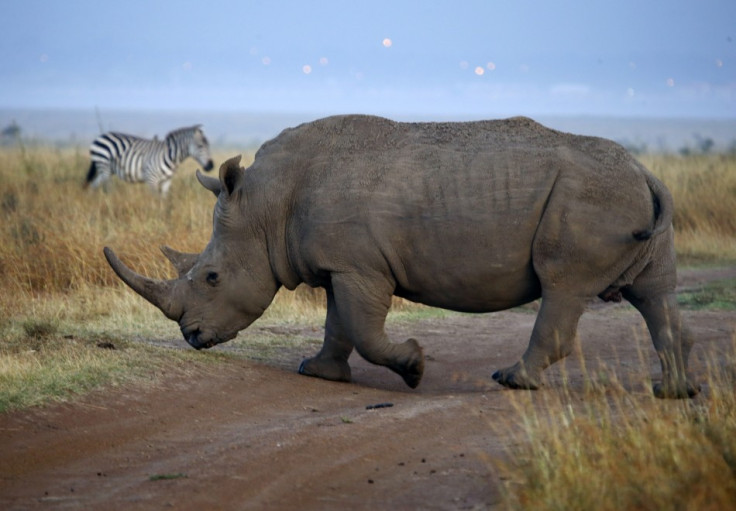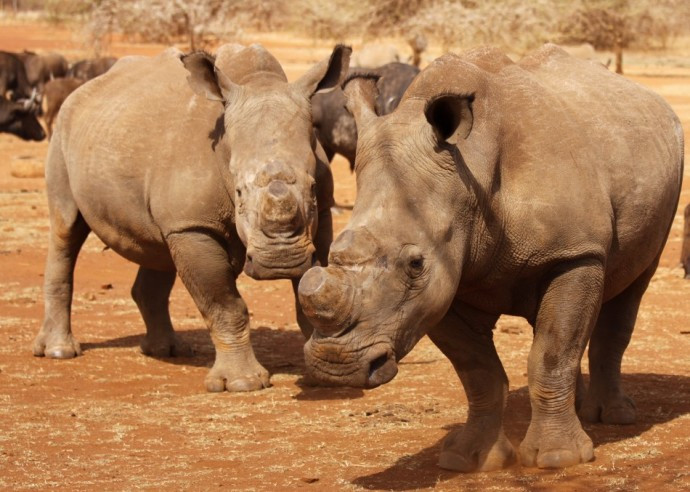Kenya's Rhinos Facing Extinction in the Wild

Kenyan rhinos are no longer able to survive in the wild without significant help from humans and may have to be kept in sanctuaries, according to conservation group Rhino Ark.
Rhino Ark director Christian Lambrechts said: "There is a growing realisation that private land holders do not have the ability to safeguard all of them. Rhinos cannot remain the wild. They must be brought into sanctuaries."
For the 850 rhinos currently living in Kenya, gangs of illegal poachers have long been a problem which has worsened of late. Some 50 rhinos were killed for their horns last year, up from 30 in 2012.
"The situation in the last year has deteriorated," added Lambrechts. "The gangs are extremely well organised and people from inside the Kenya Wildlife Service have found to be colluding [with them].

Lambrechts said up to 100 rhinos could be moved to a sanctuary located in the Aberdare mountains in Central Kenya, which is enclosed by a 250 mile electric fence built by Rhino Ark.
Despite the £6.5m fence built in 2009, poachers still managed to kill two of the eight rhinos living there last year.
"Never have fences been needed more, but they are not enough. The fence has not stopped organised poaching. Nor are sanctuaries the complete answer. Rhinos are being lost from inside them too," said Lambrechts.
"Not only have other animals recovered their populations since the fence was completed, but there has been a reduction in illegal felling of timber. Land values have increased, there is less contact between humans and wildlife and so less disease."
© Copyright IBTimes 2025. All rights reserved.






















